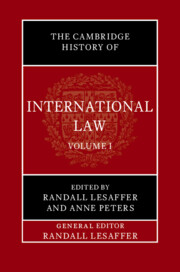| Source: De Gruyter |
As an early experiment in the creation of multilateral institutions, the League of Nations was entrusted by its members to maintain peace but also to be a standard-maker and a manager of contemporary problems and challenges requiring a global response. Nevertheless, after a while it became clear that its performance in addressing major conflicts did not live up to the expectations of guarantying collective security. In the functional areas, although the organization created precedents, it also showed limitations. Due to its complexity, increasingly the League of Nations has been studied not only from an institutional perspective but also from a more multidimensional and comparative point of view that allows to consider the presence and role of the organization in various scales and spaces, besides its relationship with a diversity of actors and themes. The League of Nations Experience: Overlapping Readings offers a multitude of interpretations, evincing some of the promising avenues through which the League of Nations continues to inspire academic research.
Table of Contents:
Introduction – The League of Nations experience: Overlapping readings
Aurora Almada e Santos
A contentious idea
The Institut de Droit International’s response to the birth of the League of Nations
Philippe Rygiel
25
The League of Nations or European federation: The Women’s International League for Peace and Freedom’s decade of debate over a “United States of Europe,” 1923–1933
Rebecca Shriver
43
Hopes and aspirations
Korea and the League of Nations: from Versailles to the Manchurian Crisis, 1919–1933
Dolf-Alexander Neuhaus
67
The accession of British colonies to the League of Nations and the “Third” British Empire
Thomas Gidney
95
The membership of the Executive Council: Portugal’s highest aspiration in the League of Nations
Jesús Bermejo Roldán and Quintino Lopes
123
Decentering the view
Plowshares into swords: The League of Nations as a weapon of internationalist war
David Ekbladh
145
Survived on sufferance: Social policy, the ILO and the new “World Organisation,” 1941–1945
Geert Van Goethem
171
A plethora of varied initiatives
The Information Section of the League of Nations: An experiment in organising communication in international relations
Arne L. Gellrich and Erik Koenen
199
The League and the world: how and why the League of Nations became the centre of world economic statistics
Martin Bemmann
223
The fight against the trafficking of women and minors before and within the League of Nations: A path to legitimacy for European voluntary associations
Sara Ercolani
249
Abstracts
275
List of contributors
279
Index
285

